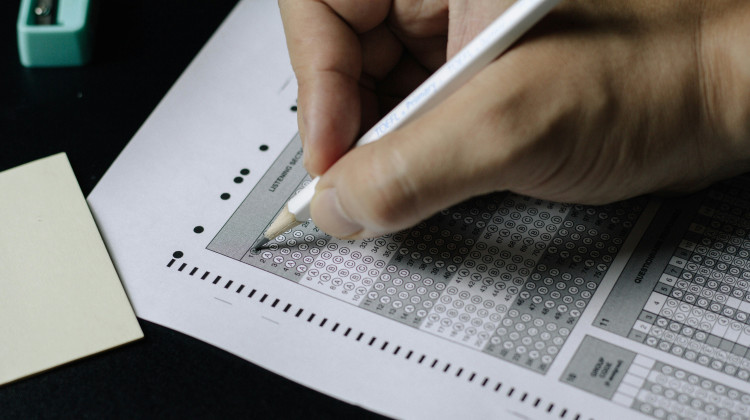Indiana middle and high schoolers who rack up lots of unexcused absences will face more oversight and have access to more support, under a bill signed into law by Gov. Mike Braun last week.
The law expands an existing requirement for schools to intervene when students miss five days without an excuse within a ten week period. Approved last year, those expectations only applied to elementary schoolers. The latest version extends the same requirements to schools educating students in grades seven through 12.
If Indiana students are persistently absent, schools must hold meetings with parents and create attendance plans. The attendance plans can include wraparound services, disciplinary action the school may take if the student does not meet attendance requirements and referrals for services such as counseling.
“I believe the way we’ve created language, it's very positive in terms of supporting schools and really getting the outcomes we want, which is to get them in the classroom,” said Rep. Bob Behning (R-Indianapolis), who chairs the House Education Committee.
Last school year, nearly 18 percent of Indiana students were chronically absent — a slight improvement from the prior year. Chronic absenteeism is when students miss 10% of the school or more, including excused and unexcused absences. Absenteeism surged during the pandemic, and it has remained stubbornly high.
The law also encourages county prosecutors’ offices to connect students and families who are referred for truancy for support services. Students are considered truant if they miss 10 days of school without an excuse.
Behning said he believes there is a benefit to involving prosecutors because it may encourage adolescent students to be more engaged.
Indiana law already requires school districts to report truant students to the local prosecutor’s office. In many cases, students and parents are not prosecuted for truancy. Instead, the prosecutor's office and probation departments push for improved attendance or connect families to services.
The new bill adds language to state law explicitly outlining some of the support prosecutors’ can provide, such as meeting with families, educators or service providers; preparing intervention plans; or connecting families with care such as family counseling and mental health services.
The bill also aims to gather more information on why students are missing school. It requires the Indiana Department of Education to collect data on the reasons why students have excused absences from school and publish that data annually.
Senate Enrolled Act 482 goes into effect on July 1.
Contact WFYI education reporter Dylan Peers McCoy at dmccoy@wfyi.org.
 DONATE
DONATE







 Support WFYI. We can't do it without you.
Support WFYI. We can't do it without you.